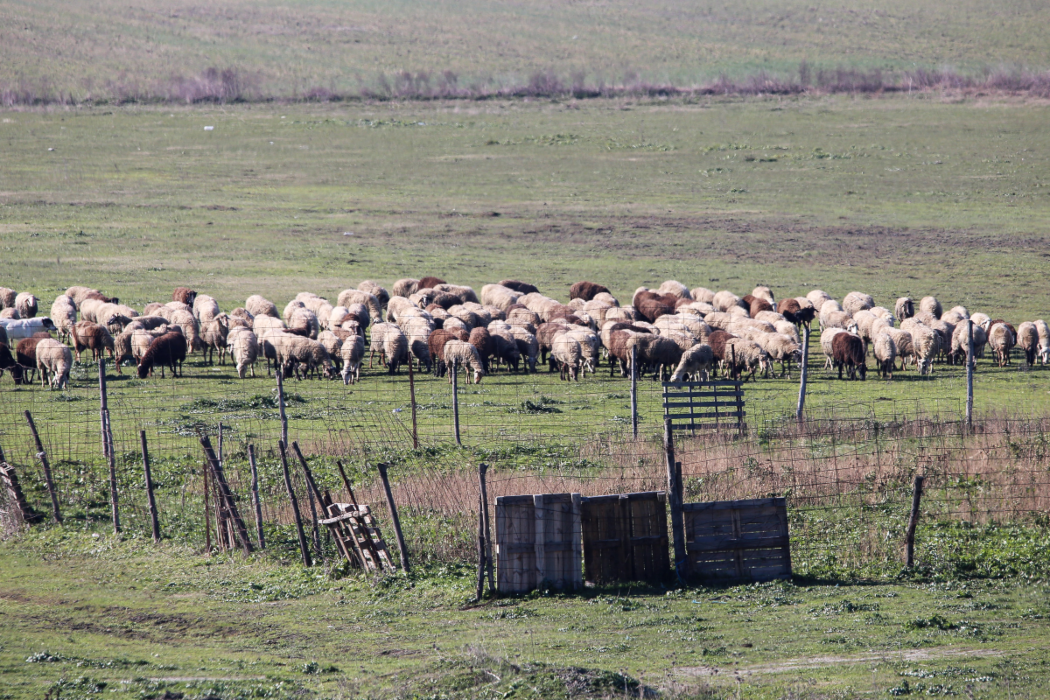Crisis at the Gates of Greek Agriculture
Greece’s livestock industry is facing a severe crisis as a fast-spreading outbreak of sheep pox has already led to the mass culling of over 315,000 animals, pushing local economies to the edge. Speaking to SKAI, Deputy Minister of Rural Development and Food, Christos Kellas, confirmed that a potential lockdown on the movement of livestock remains “open and on the table.”
Such a lockdown would likely entail extreme restrictions on the transportation of animals, feed, and even dairy products, a scenario that experts warn would deliver a devastating blow to the agricultural sector.
“Every effort is being made to avoid this,” Kellas said, noting that the issue will be the subject of a high-level emergency meeting on Monday.
Dire Conditions in Serres – Dozens of Farms Shut Down
In the region of Serres, the situation is critical. According to Deputy Regional Governor Panagiotis Spyropoulos, 7,000 animals have already been culled, with another 3,000 awaiting extermination in the coming days.
More alarmingly, 50 out of the 780 livestock units in the region have permanently shut down – many of which were run by young, educated farmers who are now financially ruined.
Spyropoulos is opposed to a total lockdown, arguing that it would further crush the already suffering sheep and goat farming sector. He has sent a formal letter to the Ministry requesting tax and insurance relief, and is also urging for a freeze on loan repayments, noting that many livestock farmers are heavily indebted.
Western Achaia: Double the Damage in Two Months
The crisis is mirrored in Western Achaia, where 9,000 sheep were culled in just two months, double the number lost during the entire previous year.
According to Andreas Filias, Deputy Governor of Agricultural Development in Western Greece, the response mechanism appeared to be operating on “autopilot,” highlighting a lack of structured support and preparation in dealing with the outbreak.
Financial Strain and Calls for Immediate Support
The financial burden on farmers is immense. In addition to losing their livestock, many now struggle to service existing loans. Spyropoulos insists that a holistic aid package must be provided – including both fiscal relief and debt forbearance – to keep the sector from total collapse.
Delayed Subsidies and ELGA SMS Controversy
Kellas acknowledged delays in subsidy payments due to backlogs at the Payment and Control Agency for Guidance and Guarantee Community Aid (OPEKEPE). However, he promised that within the next 10 days, compensation for animal feed will begin flowing to the affected farmers in Thessaly, who are still unable to cultivate their fields after the devastating Storm Daniel.
As for the recent controversial SMS messages sent by ELGA (the Hellenic Agricultural Insurance Organization), requesting refunds of overpaid compensation, Kellas explained that the initial payouts were made based on farmers’ own declarations, without full damage assessments. After official checks, it was found that 2,600 out of 38,000 cases received excess payments.
Farmers have the right to appeal, and any amounts deemed overpaid will be repaid to the tax authority (AADE) in December 2027.
A Sector on the Brink
The epidemic has triggered a domino effect across multiple regions, shutting down businesses, wiping out herds, and leaving rural communities without income. The broader concern now is whether Greece can prevent a collapse in a sector already burdened by inflation, rising costs, and global market volatility.
As winter approaches, the pressure on authorities to contain the disease, compensate losses, and restore trust in the system intensifies. Without swift, targeted, and well-coordinated action, the damage could be long-lasting — not just for livestock farming, but for the entire rural economy of Greece.
Source: pagenews.gr
